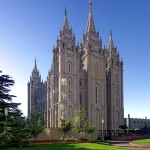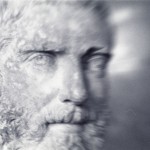In Part 1, I traced the development of Unitarianism since the early 19th century to the present and argued that UUism has, since its inception, been characterized by what William Channing called a “too partial culture of the mind.” I hinted that the “one needful thing” for UUism is enthusiasmos or personal abandonment, which I will explore in more detail in this Part.
Jung and religious experience
In 1910, early in Jung’s career, Jung wrote a letter to Freud regarding both mens’ invitation to join the International Fraternity of Ethics and Culture (I.F.). Jung’s letter assumes that Christianity must be replaced by something, but he finds ethical fellowships like the I.F. to be incapable of filling the gap created by the death of the Christian faith:
“If a coalition is to have any ethical significance it should never be an artificial one but must be nourished by the deep instincts of the race. Somewhat like Christian Science, Islam, Buddhism. Religion can only be replaced by religion. Is there perchance a new saviour in the I.F.? What sort of new myth does it hand out for us to live by? Only the wise are ethical from sheer intellectual presumption, the rest of us need the eternal truth of myth. […]
“Two thousand years of Christianity can only be replaced by something equivalent. An ethical fraternity, with its mythical Nothing, not infused by any archaic-infantile driving force, is a pure vacuum and can never evoke in man the slightest trace of that age-old animal power which drives the migrating bird across the sea and without which no irresistible mass movement can come into being.”
Note that, when Jung speaks of an “archaic-infantile driving force”, he does not seem to mean it disparagingly. From Jung’s perspective, this force is at the core of religion and absent from ethical fraternities. And, as Jung writes, “religion can only be replaced by religion.” What does this have to do with Unitarianism. I suspect that, had observed the Unitarian church in his day, he would have thought that it was not a religion, but an ethical fraternity or fellowship.
Jung observed that an ethical fraternity will never evoke in people “animal power” which drives religious movements. Recall Transcendentalist Unitarian Theodore Parker’s statement (quoted in Part 1) that the Unitarianism of his day had great “practical excellence”, but “lacked the deep internal feeling of piety, which alone could make it lasting”. While Unitarianism has in fact survived into the 21st century, it has not thrived. What John Trevor wrote in the 1870s still applies today:
“For want of something, I know not what, all their freedom, all their knowledge, all their generosity, all their high personal character— everything which seems to mark them out as the one denomination to lead the van of religious and social emancipation—never comes to the point of making them a great reforming power. People, with qualities in many respects far inferior to theirs, are moving the world to-day; while they, perplexed and pained as they are, and anxious to find the road by which they may march forward, are scarcely able to maintain the status of their own churches.”
I believe that the reason for this is that religious humanists and their liberal Christian predecessors effectively replaced their Christian religion with something that is not religion at all, an ethical fellowship. As Jung suggests, religion is something much more primal than the ethical religion of the humanists. Jung went on in his letter to describe his vision of that something. He believed that rather than becoming a part of ethical religion, psychoanalysis had the potential to take the Christian mythos and the energy that was once been a part of Christianity and use it to create a new Dionysian religion:
“I imagine a far finer and more comprehensive task for [psychoanalysis] than alliance with an ethical fraternity. I think we must give it time to infiltrate into people from many centers to revivify among intellectuals a feeling for symbol and myth, ever so gently to transform Christ back into the soothsaying god of the vine, which he was, and in this way absorb those ecstatic instinctual forces of Christianity for the one purpose of making the cult and the sacred myth what they once were — a drunken feast of joy where man regained the ethos and holiness of an animal. That was the beauty and purpose of classical religion, which from God knows what temporary biological need has turned into a Misery Institute. Yet what infinite rapture and wantonness lie dormant in our religion, waiting to be led back into their true destination. A genuine and proper ethical development cannot abandon Christianity but must grow up within it, must bring to fruition its hymn of love, the agony and the ecstasy over the dying and resurgent god, the mystic power of the wine, the awesome anthropophagy of the Last Supper — only this ethical development can serve the vital forces of religion. But a syndicate of interests dies out after ten years.”
(Correspondence from Jung to Freud, Feb 11, 1910, published in The Freud-Jung Letters, ed. William McGuire (1979)). Psychotherapy has partially succeeded in this task Jung set out for it. Nevertheless, it is interesting to note Jung’s choice of words: soothsaying, ecstatic, instinctual, drunken, feast, joy, holiness, beauty, rapture, wantonness, agony, ecstasy, mystic, awesome. These are words one would never be associated with UU worship. Instead they describe everything that Unitarianism is missing.
Watts and the art of worship
In his book, Behold the Spirit: A Study in the Necessity of Mystical Religion (1948), Alan Watts argues that the rationalism which I described in Part 1 as characterizing Unitarianism is actually endemic to Protestantism generally. Writing in 1948, Watts was standing on the precipice of the decline of mainline Protestantism and his words have turned out to have been prophetic. Watt writes that Protestantism had gradually reduced the Christian faith to mere moralism and the church itself to a social action committee:
“Even for intelligent congregations Church teaching and preaching is concerned almost exclusively with a multitude of minor matters having mostly to do with the smaller points of morality or, in liberal Protestant churches, with politics and vague ethical principles.”
Although Watts did not mention Unitarianism, the UUA is only an extreme example of a more general trend in Protestantism.
Watts argues that true religion is not morality, but “worship”. And Protestantism, he says, “has lost the art of worship”. In its place we have “edification” — symbolized by the replacement of the altar with the pulpit. He writes that the purpose of true worship is to “realize unity through corporate self-forgetfulness”. (Unity with what? With “God” — which for Watts means Reality.) According to Watts, Protestant edification and promotion of fellowship fall short of this goal, because they are too self-conscious, and true worship is the transcendence of self-consciousness. The soul “desires release from itself” and “that infusion of life and meaning through being possessed by a power greater than itself”.
“For creativity and sanity, man needs to have, or at least to feel, a meaningful relation to and union with life, with reality itself [what Watts calls “God”]. It is not enough that he be related to a human group or a human ideal … Religion must relate man to the root and ground of reality and life.”
The failure of liberal Christianity to lead people to union with God/Reality is, in Watts opinion, responsible for its decline.
Morality and ethics are not enough. Morality, according to Watts, is a byproduct of true religion, not its goal. The goal is union with God/Reality. Christianity, he says, has “degenerated largely into legalism or surface imitation of the good life without understanding of its inner meaning — the realization of union with God.”
“[T]he answer of modern liberal Protestantism, the religion of ‘ethics tinged with emotion,’ does not impress [us] as religion at all and supplies no spiritual power by means of which such ethics may be practiced.”
Divine Possession
Watt’s quotation above, “ethics tinged with emotion”, is a reference to Matthew Arnold’s (in)famous definition of religion as “morality tinged with emotion”. In an essay in The New Republic in 1958, poet and Goddess-devotee, Robert Graves balked at Arnold’s definition:
“Dr. Arnold defined religion as ‘morality tinged with emotion.’ ‘Tinged,’ forsooth! Religious morals, in a healthy society, are best enforced by drums, moonlight, fasting, masks, flowers, divine possession.”
Robert Graves, “Food for Centaurs”, The New Republic, April 28, 1958. (From the context, I think Graves may have meant “feasting”, not “fasting”.)
Graves’ statement is relevant here for its contrast of the emotional reservation of the “ethical religion” of Protestant Christianity with the self-abandonment that characterized pagan religions. “Divine possession” — nothing could be farther from the description of religious humanism which characterizes UUism today.
Aldous Huxley writes in The Devils of Loudun (1952), a historical account of a supposed demonic possession in 17th century France:
“Introspection, observation, and the records of human behavior in the past and at the present time, make it very clear than an urge to self-transcendence is almost as widespread and, at times, quite as powerful as the urge to self-assertion. Men desire to intensify their consciousness of being what they have come to regard as ‘them-selves,’ but they also desire–and desire, very often, with irresistible violence–the consciousness of being someone else. In a word, they long to get out of themselves, to pass beyond the limits of that tiny island universe, within which every individual finds himself confined.”
The rationalist might agree with this assessment but would find this to be a deplorable indictment of irrational human nature. I think the point though is that the “urge to self-transcendence” is part of human nature, as much as the “urge to self-assertion”. And as such, rather than trying to change human nature, we must work with it.
The transformative experience
If we were to look back to the beginnings of Christianity to discover how Christianity first succeeded in the marketplace of ideas (growing at the rate of 40% per decade over 300 years), we discover that self-transcendence was at the heart of it. Luke Timothy Johnson, New Testament Scholar and critic of the Jesus Seminar (the search for the historical Jesus), argues that the success of early Christianity is explained by what he calls “the Resurrection experience”. According to Johnson, Christianity does not begin with Jesus, but with his followers’ experience following his death, an experience of a “personal, transcendent, and transforming power”. (As a naturalist, I would interpret “transcendent” as “self-transcendent”.)
This is what Johnson calls “the Resurrection experience” and it can be found in the earliest writings of the New Testament, especially when they are read phenomenologically. It is an experience of spiritual or psychological death and rebirth, which mirrors the mythical death and rebirth of Jesus, a rebirth to a new kind of life, the symbol of which is the “Holy Spirit”. “Possession” by the Holy Ghost is precisely the kind of enthousiasmos that Jung, Watts, and Graves, as well as the Transcendentalists quoted in Part 1, all believed were missing from rational and ethical Christianity of their respective times.
It is precisely this kind of divine possession which is, I believe, the “one needful thing” in UUism and mainline Protestantism generally. And I would argue that its absence is what accounts for the decline of mainline Christianity and the growth of evangelical Christianity. Turning to contemporary Paganism, I would theorize that “divine possession” is responsible for the growth of deity-centered, hard-polytheism in the Pagan community. In place of the indwelling Holy Spirit among Christians, the polytheists have “assumption of god forms”, evocation/invocation, “drawing down”, aspecting, and plain old possession. What is more likely to convince you of the authenticity of a religion, I wonder: a social action committee meeting or the experience of being possessed by Wotan?
If this is true, then those organizations and movements which have been influenced by religious humanism, UUism (and perhaps humanistic/naturalistic Paganism as well?), must find a way to help their constituents to lose themselves. I’m not advocating here that we try to replicate the specific forms of divine possession present in early Christianity, or contemporary evangelical Christianity, or in contemporary polytheist practice. But I think but an experience of the same or similar character is necessary for a religion to thrive — and experience of a “personal, [self-]transcendent, and transforming power”. We may lose ourselves in deity, in nature, or in an expanded notion of the Self. But self-transcendence does seem to be the key. How we accomplish that is the question and the subject of Part 3.














